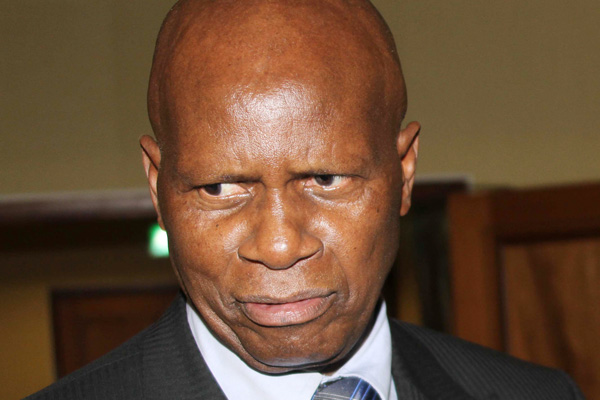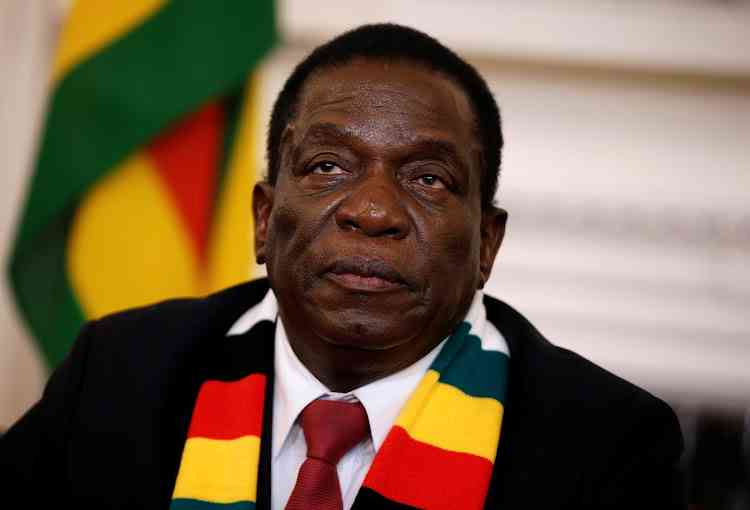
The Zanu PF government does not tolerate criticism and those that cross its paths are designated enemies of the state or a threat to national security.
Comment: The Standard Editor
This is why the Zimbabwean media landscape is considered to be among the most difficult in the world where journalists are routinely punished for doing their work.
Lack of media freedom has created a culture of self-censorship, which is very unhealthy for a democratic state.
President Robert Mugabe’s government has lurched from one blunder to another since independence in 1980 because the media, which is supposed to play a watchdog role, is not allowed to perform its duties without undue interference.
The reaction to our lead story last week exposing serious flaws and potential criminality in government’s much talked about command agriculture programme should be understood in that context.
Finance minister Patrick Chinamasa, whose ministry generated the advisory note that warned of serious flaws in the financing of the programme, was predictable in his response as he tried to save face.
He made very serious but blatantly false allegations against this paper, claiming that a Cabinet minister had assisted in editing the story.
- Chamisa under fire over US$120K donation
- Mavhunga puts DeMbare into Chibuku quarterfinals
- Pension funds bet on Cabora Bassa oilfields
- Councils defy govt fire tender directive
Keep Reading
Chinamasa, using the obliging Herald newspaper, tried to explain the story away by locating it in the raging Zanu PF factional wars.
However, we could not let him get away with such mediocrity and we immediately called him out on his blatant lies.
We also challenged him to respond to the substantive issues raised in the story and to his credit he made an attempt to do so through a press statement and by answering some tough questions in the National Assembly.
But Chinamasa still failed to explain how the government found itself in this mess and we owe it to our readers to continue demanding more answers from him and those behind command agriculture.
The government is pouring millions of dollars of taxpayers’ money into this shadowy programme and ministers should not cry foul when the real owners of the money ask questions.
Our role as the media is to hold leaders to account and no amount of lies and threats would hold us back from carrying out that duty.
In this edition we have taken the story further by posing questions to opinion leaders who by virtue of their previous experience in government are able to shine a light on an issue that the authorities appear very desperate to hide from taxpayers.
Former Finance minister Tendai Biti and ex-Economic Planning minister Tapiwa Mashakada are very clear in their responses that command agriculture is another ugly Zanu PF scheme that can only drag us deeper into economic ruin.
The two contend that the financing of the scheme violates both the Constitution and the Public Finance Management Act because Parliament was sidelined.
Zimbabwe’s Constitution says all government borrowing must be approved by Parliament, but that was not the case when Sakunda Holdings was engaged.
The suspicion is that the deal was kept away from Parliament because those behind the scheme did not want the terms and conditions of the private arrangements with Sakunda to be publicised.
Mashakada also notes that even if government had “sourced” the funds, the way it went about in partnering Sakunda still violated public tender and debt contracting procedures.
The amount of money involved in the deal demanded that the loan must be approved by Parliament.
Since this did not happen, the term sheet for the loan remains a secret and it raises a lot of questions.
Our duty as the media is to demand transparency, not to be attack dogs for an elite that is intent on plundering the country’s resources.
Patriotic journalism will not fix Zimbabwe’s problems and those pushing the nefarious agenda will be judged harshly by history.










